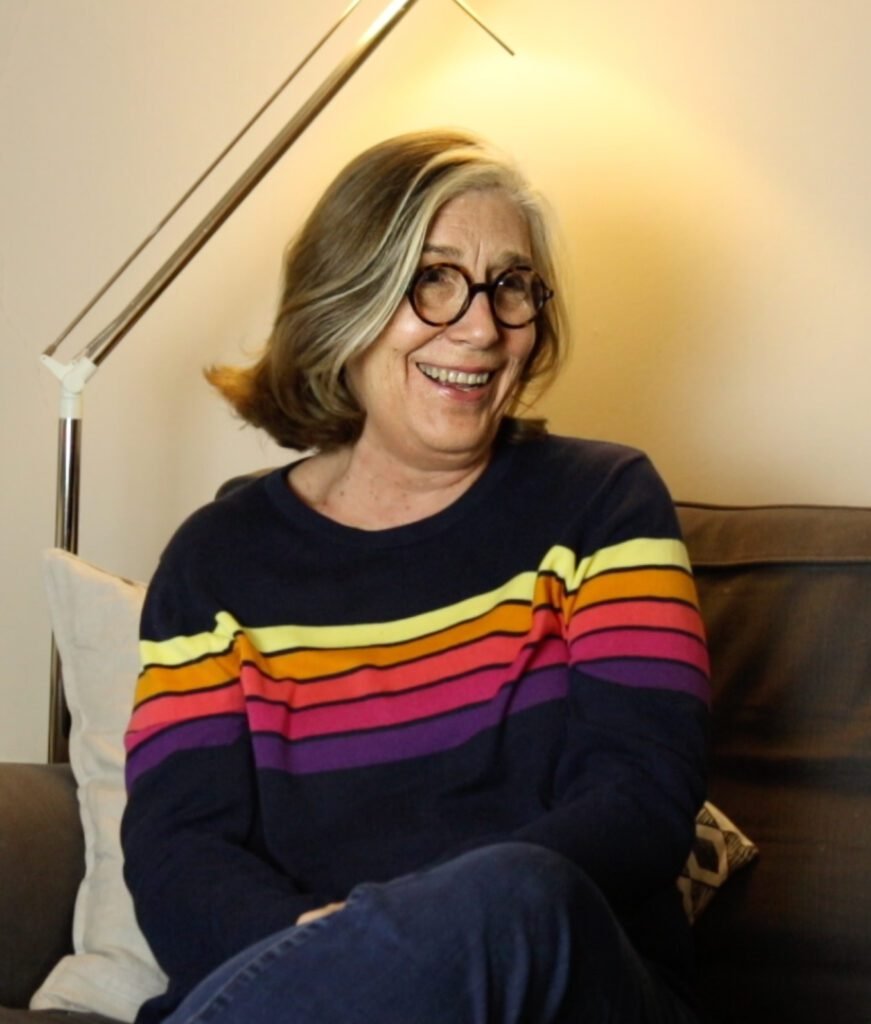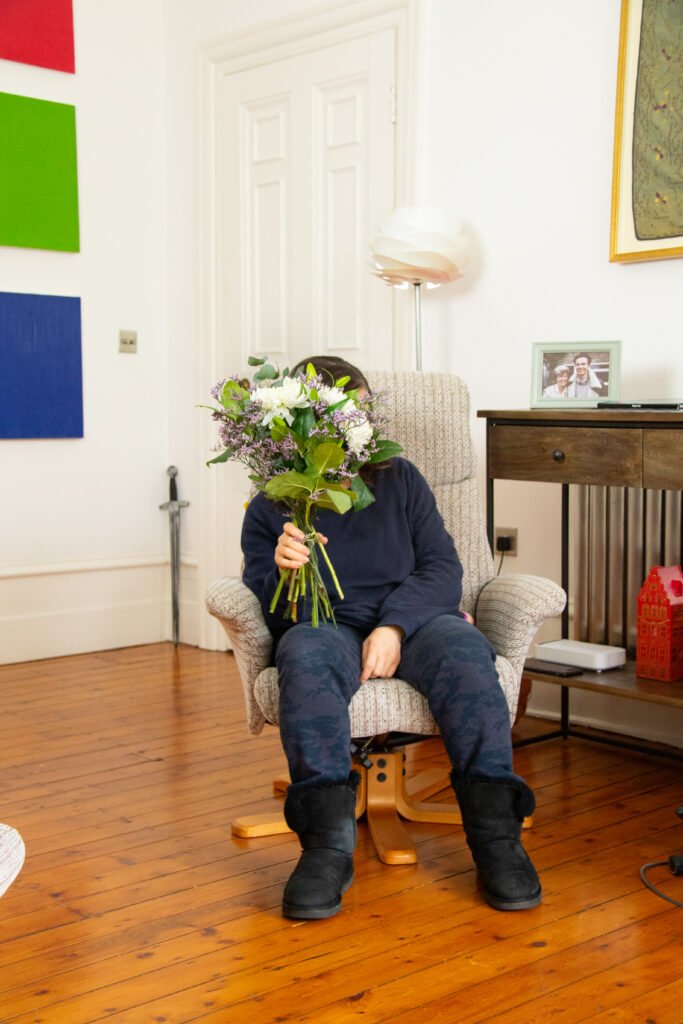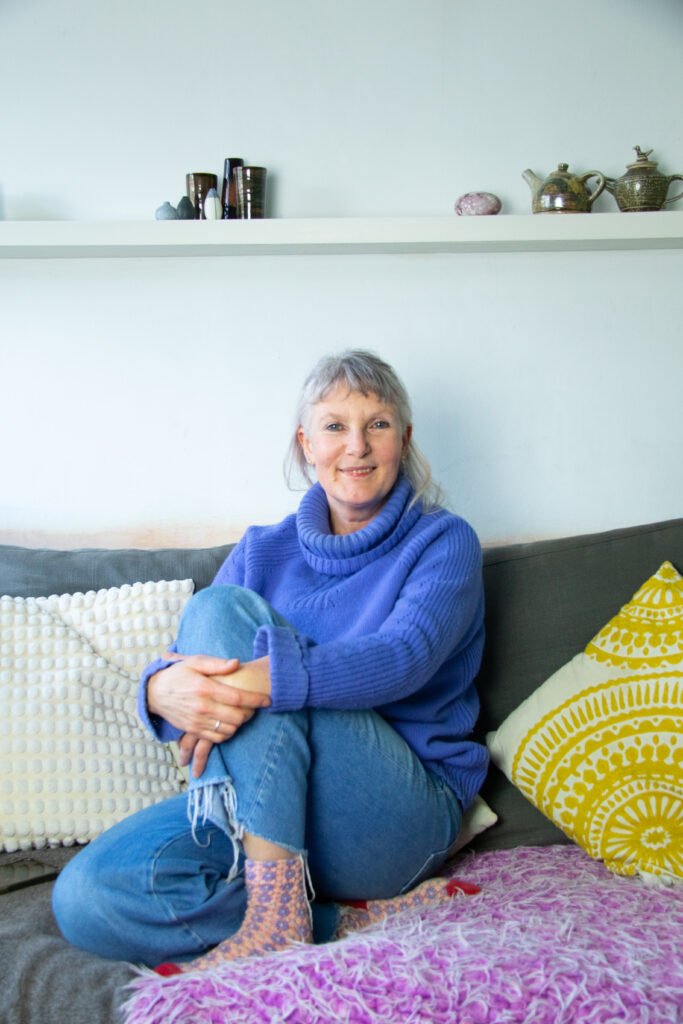The Split talk to three women in their 60s for their wisdom on love, loss and everything in between
Be it choosing your own happiness over a future with the wrong person, sharing unreciprocated feelings with kindness, or navigating a partner’s illness while mourning the relationship you once had – love is messy.
Despite the variety of every person’s experience, the women we sought wisdom from, now in their 60s, offer us advice that is strikingly similar to one another: let go, move forward, and trust that healing will come.
The dating scene may have changed since they were last single, but their lessons in love remain just as relevant in today’s world. Their stories are filled with humour, honesty, and hard-earned wisdom. If you’re going through a breakup, let this act as a comforting reminder: heartbreak may be universal, but so is healing.
Lyndsay, 63, Creative Director

Lyndsay spent years navigating the ups and downs of dating before finally settling down in her 40s. After an awkward proposal, followed by a painful breakup, she accepted the possibility that she might never marry or have children, choosing instead to embrace what she could control: her own happiness. She believes the key to moving on is keeping busy, leaning on friends, and refusing to settle for the wrong person. In the end, love often finds you when you least expect it.
What has been your worst heartbreak moment?
It was in my forties, and we’d been together for about five years. It was all very full on at the beginning, like moving in together very quickly. Ultimately, I think we were just in different places. He wanted to go off to India to find himself, whereas I was wondering if I was ever going to have children. So we sort of semi-broke up, and then when he came back, he decided he wanted to marry me. But by then, I had already decided it wasn’t going to work.
How did you heal from that breakup?
How does anyone get over a breakup? It took a long while. This is so trite, but it’s time. I went out with my mates until they got utterly bored of hearing about how pissed off I was. I threw myself into my job and went out with lots of unsuitable people just to get my mind off him. Eventually, I thought: “I might end up being single for the rest of my life.” And as much as I wanted to get married and end up with three kids, I also realised, or decided, that I was going to spend the rest of my life being miserable about something I had no control over. I learnt it’s best to focus on the things you can control, and unfortunately, relationships aren’t always one of them.
How did that breakup affect your subsequent relationships?
It really made me think that I would rather not be with someone than be with the wrong person. I have been with the wrong person more than once, so I thought: “now I’m just going to wait for someone who’s actually compatible with me.” And, it turns out, that person was somebody I already knew but hadn’t thought of in that way yet. You always meet the right person when you least expect it.
Arezoo, 62, retired architect

Arezoo has faced heartbreak of a different kind – watching dementia reshape her husband, Richard, and their life together. Married for 30 years, their relationship was built on deep conversation and shared curiosity, but as his condition progressed, words slipped away, and their dynamic shifted. Now, they navigate a new reality – less like husband and wife and more like companions bound by history. Through it all, Arezoo has learned that love is about choosing to stand by your partner through every stage of life.
Tell me about the first time you met your husband.
We’ve been together for about 33 years and married for 30. We met with a group of friends at a bar and got talking. It wasn’t love at first sight, but I did really like him. For our first date, he suggested we go watch one of his colleagues, who was Indian, perform with her international dance group. One of the songs that they danced to was Iranian, which impressed me because I am Iranian. That was the thing that brought us together – his interest in anything diverse and different. The more we met up, the more I liked him.
What is Richard’s condition?
He has semantic dementia, which is a progression of a condition called primary progressive aphasia. It’s something that primarily affects people in middle age and initially presents itself as a mental health issue. This makes it difficult to diagnose because we thought Richard was just depressed, but then he started forgetting things and struggling with language. He was diagnosed during lockdown over a telephone consultation. The specialist was very blunt: “It’s dementia. There’s no cure for it.”
I was completely numb. Richard came and sat with me on the sofa and said: “I don’t want you to cry or be upset. Don’t feel bad for me – no one lives forever, and this is just how I’m going to go.” It was amazing – the way he accepted it. He wasn’t bitter or angry; he was the one trying to make me feel better! His wish was that I don’t feel bad or sad about what’s happening to him, so I just take it day by day.
How has your relationship changed since the diagnosis?
Sometimes, I have to look at photos of him before he got ill to remind myself that this person used to be my husband because this is not the man I married in terms of the personality he had at the beginning. But if you separate the person who has the condition from the one before, then you deprive yourself of empathy and love. This is the same person that you have always loved; you’re just seeing the inner core.
The relationship is really different. When someone has dementia, they become extremely vulnerable; sometimes, he acts like a child with no inhibition. I’m his main carer, so it’s almost like a mother-and-child relationship. Language causes him so many difficulties, so we don’t have conversations anymore. We may not be like husband and wife, but we are great friends.
Anni, 60, artist

Anni has had her fair share of heartbreak – both as the dumper and the dumpee. Now married, the London-based artist reflects on the lessons heartbreak has taught her and how her daughters’ experiences in the digital dating age are worlds apart from her own. From the sting of betrayal to the quiet guilt of not returning someone’s feelings, she’s learned that honesty is key. While Anni agrees that time is a great healer, it’s about filling that time with things that nourish you. Her advice? Trust your instincts, date at your own pace, and enjoy your independence before diving into something new.
What changes have you observed in the dating world?
I think the biggest thing is that so much of it is online. You might think that you’re compatible on the dating app, but you’re never actually going to know until you’re with them. It might sound like you’re going to be the ideal match, but how do you know? People can lie so much online because there’s a lot of pressure to play the dating game.
As well, we all work at different paces. So you might meet someone who’s desperate to be in love and get together and see you all the time, but it’s about finding a middle ground and respecting your own dating pace.
The other thing that’s really interesting is the idea of ‘red flags’. There was none of that language when I was younger. I think it’s such a great way to express what might make you feel uncomfortable about a person. If something doesn’t feel right or you’re not sure about them – trust your instincts.
What was the worst heartbreak you went through?
Probably the worst was when I found out this guy I was in a relationship with was having a fling with one of my friends. There were quite a few red flags that I sailed happily past. It was horrible because I was still really attracted to him. It was like there were two parts of me, one saying: “He’s really gorgeous, so maybe you should still try having a not-too-serious relationship with him.” And then the more sensible part of me: “Just get out of it – he’s bad news.” I knew it would be bad for my self-esteem to play second fiddle to someone else.
The other side of it is letting other people down who I knew really liked me. There was one guy who was so sweet and romantic – even wrote me poetry. I really liked him, but I just didn’t want to be with him in that way. And that was almost trickier than being let down by someone else. What I’ve learnt over the years is that honesty is the best policy, but done as nicely as you possibly can. But no one ever tells you how to do these things; you learn as you go along.
How did you heal from heartbreak?
Time can really help. Chatting with good women friends can be really great, too. But choose the right friend who isn’t going to up the ante and make it a big drama. And developing platonic relationships with men. I loved having other guy friends who could give me a different perspective. I think as you get older, you forget how painful it feels, both physically and emotionally. Those feelings can be quite scary because it’s a different sort of pain that you might not have felt before. So, it’s okay if you’re feeling vulnerable. You have to be your own sort of lovely auntie and do all those self-care things. If I’m in distress, I love to be out walking in nature. I’ll go have a coffee, buy myself flowers and have a nice bath. It’s the little nurturing things that are important.
